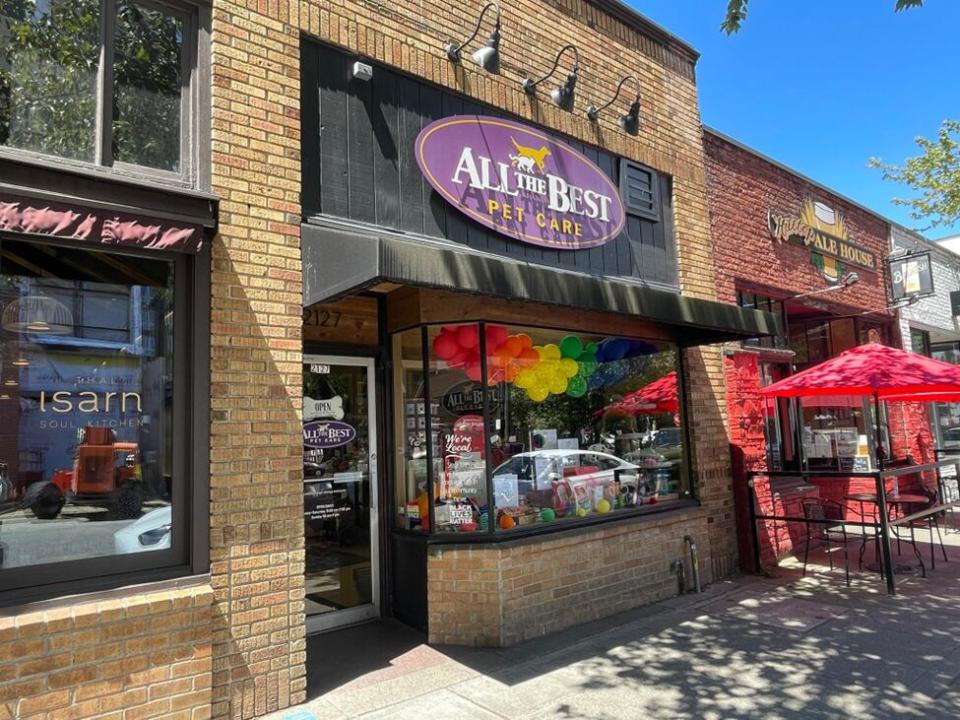Lawmakers in Washington state are toying with an idea to add new delivery fees to online and store orders to help fund the state’s road infrastructure.
A spokesperson for the Association of Washington Cities (AWC), which represents more than 280 cities in the state, said many cities are struggling to maintain roadways due to tight budgets.
Gas taxes currently support the state’s road infrastructure, but the amount of funding is decreasing as people buy more electric vehicles and more fuel-efficient vehicles, the spokesperson added.
The bipartisan Joint Transportation Committee is currently reviewing studies and collecting data on how this new fee could impact Washington for lawmakers to consider if necessary.
“The revenue generated would range from $45 to $112 million per year, which could then be distributed to local governments across the state for transportation,” said Dave Catterson, coordinator of the Joint Transportation Committee.

The research included possible scenarios, such as excluding charges for orders under $75 and for small businesses.
The AWC told KIRO 7 News this is just an idea, so there are no clear details on what the compensation could be.
The Joint Transportation Committee hired consultants, who looked at Colorado and Minnesota, to learn more about the potential impact of the fee.
Colorado enforced a fee of 28 cents per delivery in 2022, which generated about $75.9 million in the first year, the study found.
In Minnesota, state lawmakers passed a bill to enforce a similar fee, charging 50 cents for deliveries that cost more than $100. The study estimated this would generate about $59 million for cities.
State Senator Mark Liias told KIRO 7 News the idea could benefit many communities and hold delivery companies, like Amazon and UPS, accountable.
“That different way of getting goods into our economy means there is more wear and tear on the roads. When I drove myself to the mall, I didn’t drive a UPS truck or an Amazon van. These vehicles put more wear and tear on our roads, so I think it’s fair to look at those impacts,” he said.
However, Representative Jim Walsh disagreed with the idea, adding that it could hurt working families.
He said the state government needs to do better on the budget front, which could put less pressure on local governments.
“I sympathize with local governments who are feeling this pressure, but to create new taxes on top of existing taxes, and especially new taxes that are aggressive and that weigh heaviest on working families and poorer families, that is not a good solution to this budget problem . ,” he said.
KIRO 7 News drove around Seattle and talked to people about the new idea.
Jason Tillman, who lives in Seattle, said he would support the idea if the state were to consider lower-income people.
“I am in favor of improving our infrastructure,” he said. “But when I use public transport, I am a bit at the mercy of the bus and train. I want those services, that infrastructure to still be well maintained, because being on the bus when it is very bumpy and there are potholes everywhere is not a pleasant experience.”
He also said the possible exemptions could be more harmful than good.
“If they (customers) create multiple transactions of less than $75, they can say: it’s worth it to me to have a bunch of smaller transactions, which would probably be harmful to the infrastructure and the roads, because there more packaging material is created, more travel, more transport logistics,” he said.


But Saysha Belton, store manager at All The Best Pet Care, a local store in Queen Anne, said the new idea would drive her customers away.
“That would immediately have a negative impact on us. We already compete with places like Amazon and Chewy for online orders, and if we have to add additional fees, we will certainly lose sales as a result,” she said.
Belton said her store serves many older Americans who live on fixed incomes.
“They have limited resources and are always trying to get the best deals on things, and I feel like more unnecessary costs will turn them away,” she said. “They really rely on deliveries of cat litter and things like that. They can’t get that back and so if they have to pay more, they will probably turn to Amazon for free shipping.”
The JTC said it should complete its studies by the end of June.
There is currently no timeline for lawmakers to create a bill.







